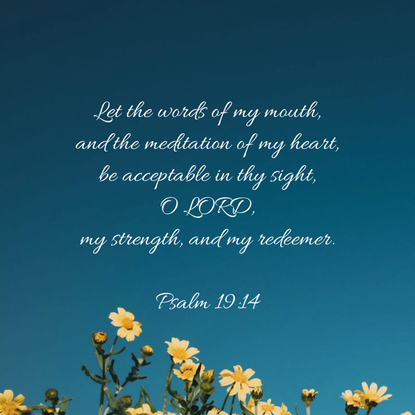|
Good morning!
We're so glad you chose to join us today!
When we meet together, we take some time to share about the last week, and any prayer requests we may have. If you have a prayer request, you can add it to the comments on this post. When you are ready, use the prayer below to get started.
Lord Jesus,You chose to be called the friend of sinners. Free me from my sins and bring forth a harvest of love, holiness and truth. Amen
Today's lesson is on Luke 7:36-39, 44-50.
In between last week's lesson about the Centurion's servant being healed and today's lesson, Jesus brought back to life the only son of a widow plus healed people of being blind and other afflictions. Jesus also talked to John the Baptist followers.
Luke summarizes two viewpoints toward Jesus that has emerged. Those viewpoints are revealed by reactions to John the Baptist. On the one hand, “All the people, even the tax collectors, when they heard Jesus' words, acknowledged that God's way was right, because they had been baptized by John”. On the other hand, “the Pharisees and the experts in the law rejected God's purpose for themselves, because they had not been baptized by John. Rejection of John the Baptist, Christ's forerunner, meant rejecting Christ as well. This set the stage for a contrast between those who held those polar opposite viewpoints. The Pharisees advocated strict and scrupulous observances of the Law of Moses. Over time, this resulted in human traditions being added to that law. Today's lesson takes us to an early point in Jesus' ministry when things had gotten serious enough for Pharisees to come from “every village of Galilee and from Judea and Jerusalem” to investigate him. This is one of three times in Luke that Jesus was invited to a meal at the home of a Pharisee. The motive behind the invitations seemed to be that of scrutinizing Jesus more closely, noting any violations of the Law of Moses as interpreted by the Pharisees. We do not know the identity of the woman. We just know she had lived a sinful life. Therefore, the host did not welcome her presence at his dinner. She came with an alabaster jar of perfume. She knelt down behind Jesus and since it was the custom he had his sandals off. She proceeds to wash his feet with her tears. Then she wiped them with her hair, kissed them and poured perfume on them. When the Pharisee said to himself, 'If this man was a prophet, he would know who is touching him and what kind of woman she is – a sinner.” The Pharisee was condemning both the woman and Jesus. Jesus did not fit the idea of how a prophet should conduct himself. The Jews' understanding of what made them unclean was often tied to touching. Pharisees were obsessed with the avoidance of anything unclean or violations of the Law. This woman was the living embodiment of everything they warned against. The contrast between the woman, who expresses her love for Jesus, and the Pharisee, who views her with disdain, could hardly be sharper. Jesus now tells Simon a parable. There was a certain creditor who had two debtors. One owed five hundred denarii, and the other fifty. And when they had nothing with which to repay, he freely forgave them both. Tell me, therefore, which of them will love him more?” Simon answered and said, “I suppose the one whom he forgave more.” And he said to him, “You have rightly judged.” Jesus said to Simon, "Do you see this woman? I came into your house, you did not give me any water for my feet, but she wet my feet with her tears and wiped them with her hair. You did not give me a kiss, but this woman, from the time I entered, has not stopped kissing my feet. You did not put oil on my head, but she has poured perfume on my feet." All of these were an act of hospitality for guests in one's house. Footwear of the era did not keep dust and dirt out. It was proper to at least give your guest water and a towel to wash his feet. It was customary to give your guest a kiss as an expression of greeting and welcome. The offer one's head to be anointed with oil communicated favor. Jesus said “Therefore, I tell you her many sins have been forgiven- as her great love has shown. But who has been forgiven little loves little.” The woman's great love demonstrated that she knew she had much to be forgiven. By contrast, Simon loved little because his scrupulous attention to the Law of Moses had resulted in few sins to be forgiven of. Simon was proud of his tidy lifestyle as a Pharisee, he believed that he was vindicated by his success in keeping the Law of Moses strictly and by his descent from Abraham. The Pharisee understood neither why he needed to love and be loved by Jesus nor how the woman's many sins could be forgiven, especially by Jesus. Jesus said to the woman, “Your sins are forgiven. Your faith has saved you; go in peace.” Jesus clarifies the underlying reason for her forgiveness: her faith, which is the source of her love. By devoting herself to Jesus, she has yielded her heart to him in repentance. The other guest began to say among themselves, “Who is this who even forgives sins?” If Jesus indeed had the power to forgive sins, then he is God-in-the-flesh. But if Jesus did not have such power, then he was guilty of blasphemy.
Conclusion: Who needs forgiveness.
Many unbelievers today are involved in unholy, unbiblical activities. Some even make their living doing things that Christians know are immoral. It is easy for those within the church to take a dim view of these people, judging them to be incorrigible sinners. To be sure, a judging function does (or should) exist legitimately with the church. But this judging function bears little, if any, resemblance to the one used by Simon the Pharisee. His viewpoint was that of complete rejection, thinking himself more highly and being confident of his own righteousness. But Simon was not completely sinless. As a student of the Law of Moses, he should have realized, as the Pharisee Paul did,that “all have sinned and fall short of the glory of God”. Another way to look at it is to imagine a survey being taken in Pharisee Simon's village. The survey question is, “Who needs to be forgiven, Simon or the immoral woman?” The villagers would predictably respond overwhelmingly to the immoral woman. But this is really a trick question since it presents a false choice. It is not a matter of “either/or” but one of “both/and.” They both needed to be forgiven of sin. They both needed a humble faith that would bring them to God with hearts full of love. They both needed to follow Jesus, love God, and serve others, The tragedy of this story is that only one of these people left the banquet forgiven. Simon's apparent pride in seeing himself superior to the woman blocked any realization of needing forgiveness. Christians are to flee from sin and obey God. We show our love for God when we keep his commandments. But does this justify us when we reject and condemn those who struggle with sin? Are sinners welcome in our fellowship if they are seeking to love Jesus? Or must they clean up their sinful lives before they enter the doors of our church? Jesus taught that even the vilest of sinners can be forgiven if they turn to him in faith and love. Are we willing to follow him in his love for sinners and help them as they strive to follow Jesus, however imperfectly?
Prayer
Heavenly Father, you have shown us your willingness to forgive sinners. May we not keep that message to ourselves! And let us not be selective in pretending to know who will accept and who won't. Help us to love our neighbors as you love us by taking the good news of your Son to them. In his name we pray. Amen. Thought to Remember: To have forgiveness, we must first realize that we need it.
Questions
Benediction
Today's benediction is from the King James Version
Next week's lesson will be on Matthew 15:21-28.
0 Comments
Leave a Reply. |
AuthorWe are a small, rural Presbyterian church in southwestern Pennsylvania. Archives
July 2024
Categories
All
|



 RSS Feed
RSS Feed